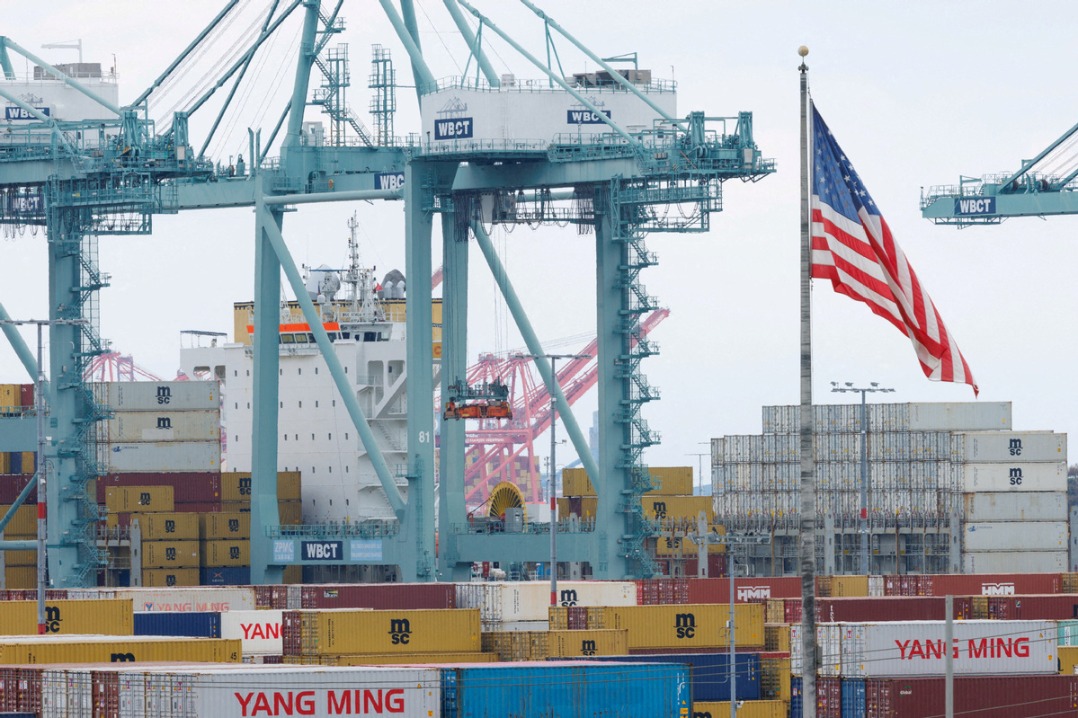'One country' points to sovereignty's indivisibility

The principle is "one country, two systems", not "two systems, one country". The world seems to forget that Hong Kong is a part of a country.

For the transfer of sovereignty ending colonialism in China, this terminology itself was underpinned in the 1984 Sino-British Joint Declaration with a specific underlining of the authority of the People's Republic of China that guaranteed a high degree of autonomy for the Hong Kong Special Administrative Region.
In a 1919 lecture titled "Politics as a Vocation", German sociologist Max Weber stressed the importance of the state as monopoly holder for the legitimate use of physical force in a particular territory. We can see then that no other territory in the world enjoys the same privileges that Hong Kong does under "two systems".
If we read carefully the Law of the People's Republic of China on Safeguarding National Security in the Hong Kong Special Administrative Region, Chapter IV clearly stipulates the jurisdiction of this law is still under the authority of the HKSAR.
The whole process of implementing the national security law for Hong Kong still has a long way to go. Its stipulations need to be integrated into the HKSAR judicial and legislative system.
Indeed, there should be consensus and understanding between the HKSAR government and the central government in Beijing on the national security law's implementation.
That this law is viewed by certain international communities as controversial, and with skepticism, is not surprising. They do have a different attitude and thinking. But to be meddling in the HKSAR with a perception that the Basic Law is being torn apart is premature to say the least.
First, when the security law for Hong Kong was announced and being implemented by the HKSAR police to apprehend demonstrators who violated the law, the reaction of the Hong Kong people was as if nothing had changed dramatically.
The Hang Seng Index has kept rising steadily, people keep to their activities within the COVID-19 protocols, and small businesses keep striving to regain the business lost due to months of chaos by protesters and the pandemic.
It will take time to integrate the national security law judicial mechanism in the HKSAR. Meanwhile, the United States and British politicians condemn the law as draconian, which otherwise betrays their interference in the city's affairs. The rest of the world will look on as international meddlers go even further, offering migration - especially for HKSAR citizens who hold the British National Overseas passport - to countries like the United Kingdom, Australia or the US.
Second, in the minds of many, Hong Kong historically has been a hub not only for the movement of goods and people but also political ideology since the Qing Dynasty (1644-1911). The famous leader Sun Yat-sen used the territory to start the political movement to restore the Chinese nation.
However, in the daily lives of Hong Kong people, who tend to be apolitical, practically nothing has changed since Hong Kong's return to China in 1997. When disruption did come in 2014, in the so-called Umbrella Movement that disrupt-ed everyday life in the city, there was evidence of foreign involvement, which worried leaders in Beijing.
Such evidence became more apparent since mid-2019 during months of continuous "black-clad turmoil" that sank the city into chaos.
Third, the "one country, two systems" mechanisms that have been enacted for 23 years in Hong Kong may confuse the world's perceptions of Beijing's ideology and implementation of power.
However, if we look at an article written by prominent Chinese political scientists Wang Bangzuo and Wang Huning in 1985 on sovereignty and governance, and the principle of "one country, two systems" embodied in the related documents and laws, then we need to understand that "one country" is about the indivisibility of national sovereignty and the unity of the Chinese nation.
The new security law for Hong Kong is not related to national security legislation on the Chinese mainland, which after decades of evolvement is embodied by the 2015 National Security Law. It is also not endangering the freedom of Hong Kong but is to guarantee that the HKSAR is an integral part of China's sovereignty.
Beijing must establish the security law for Hong Kong to ensure that any problems occurring in Hong Kong do not threaten Chinese sovereignty as a whole, and to suppress secession, subversion, terrorism and collusion with foreign forces.
The whole idea of the security law for Hong Kong will invite debate among "pro-democracy "activists in Hong Kong and outside foreign powers, in a long and tiresome process until the law itself manages to run its course under the spirit of Hong Kong's Basic Law.
Necessary action has been implemented to bring peace and stability to Hong Kong.
The author is chairman of the Indonesia-based Center for Chinese Studies and associate fellow at The Habibie Center in Jakarta and the EastWest Institute in New York.
































